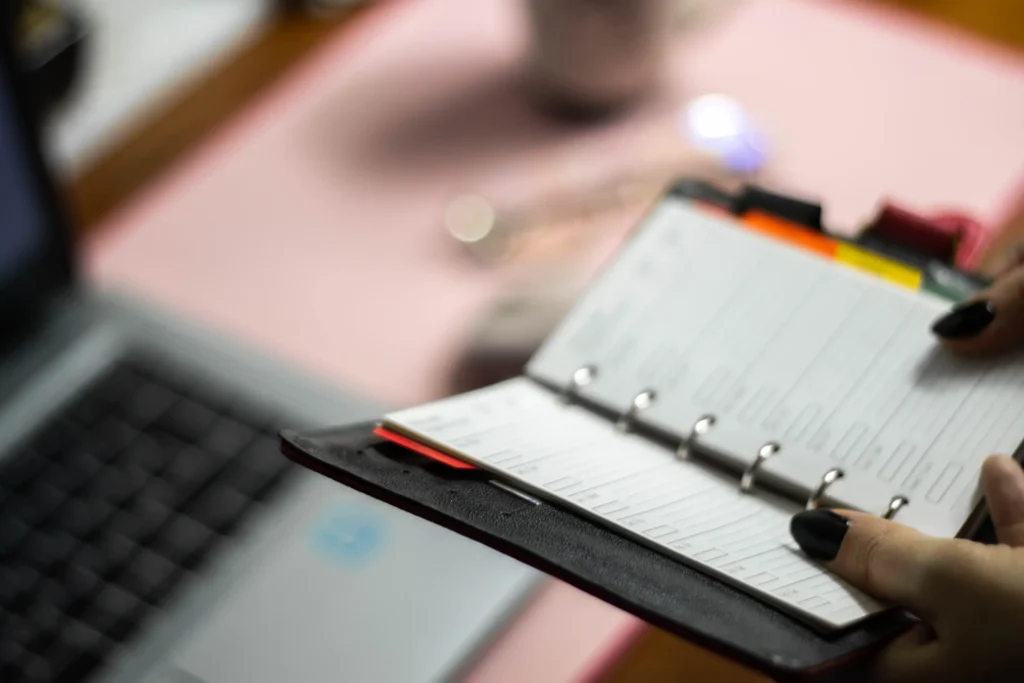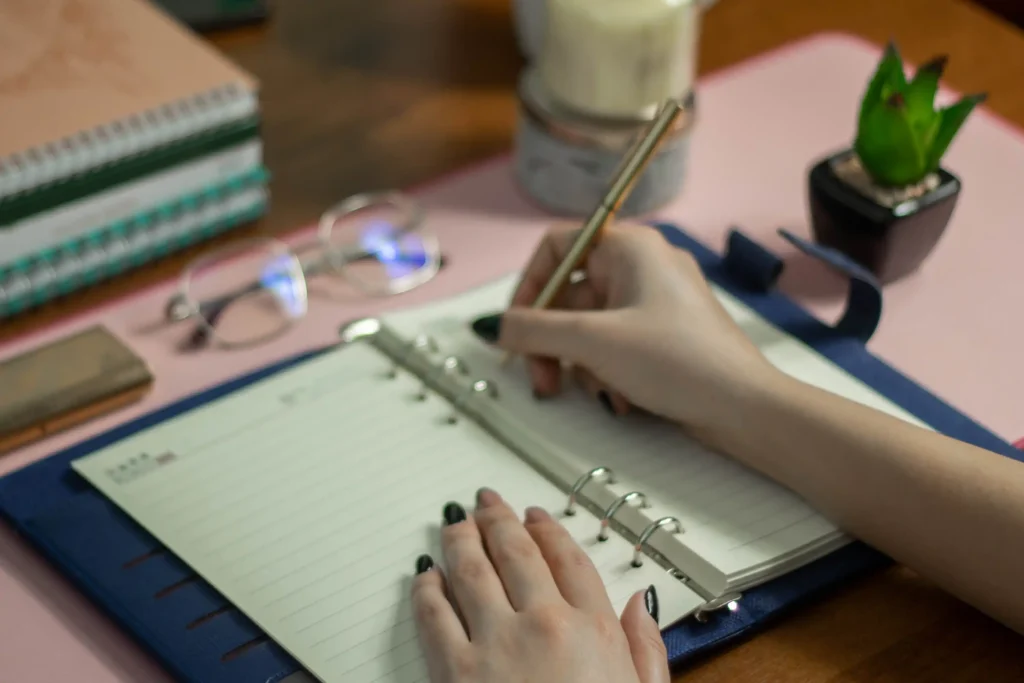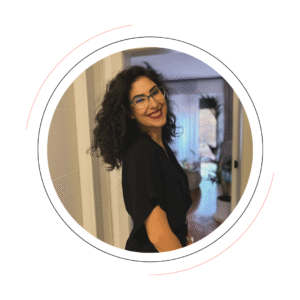I may not be a pro with a degree as a master organizer, but I know I love reading what other people have tested out, found interesting and decided to share. These are some of the tips for staying organized that I gathered when I started looking into organization and making the most of it.
If you’re just starting or you want to refresh your routines to stay focused, I hope I’ll give you some ideas and mention something you haven’t tried yet. The point is finding simple ways to stay on top of things so you can spend more time doing what you enjoy.
Why Most People Struggle to Stay Organized
Let’s be honest – staying organized feels impossible most days. You start the morning with good intentions, maybe even write a to-do list, but by afternoon you’re drowning in emails, random tasks keep popping up, and that list you made? It’s buried under a pile of papers or lost in your phone somewhere.
The real problem isn’t that we’re lazy or don’t care about being organized. Our days are packed with coffee dates, errands, Netflix time, not to mention working for 8 hours. We’re dealing with information overload, constant interruptions, and systems that don’t match how our brains work.
Most people try to force themselves into organization methods that look good on Pinterest but don’t work in real life. They create elaborate color-coded systems that take more time to maintain than they save, or they try to plan every minute of their day when they’re naturally more spontaneous.
The result? You feel like a failure at organization, give up on systems that could help, and end up more stressed than when you started.
Understanding Different Organization Styles
Before diving into specific tips for staying organized, you need to understand how your brain works. Different people need different systems, and trying to force yourself into the wrong approach is why most organization attempts fail.
The biggest mistake people make is copying someone else’s system without considering their own working style. Maybe you’ve tried bullet journaling because it looks amazing on Instagram, but you’re naturally more digital. Or you’ve downloaded every productivity app but you’re someone who needs to physically write things down to remember them.
What Type of Organizer Are You?
Here’s a breakdown that can help you figure out what kind of systems might stick:
| Trait | Type A | Type B | Type C | Type D |
|---|---|---|---|---|
| Structure or freedom? | Structure | Freedom | Structure | Freedom |
| Digital or analog? | Digital | Analog | Hybrid | Analog |
| Plans far ahead? | ✅ | ❌ | ✅ | ❌ |
| Distracted easily? | ❌ | ✅ | ✅ | ✅ |
| Suggested system | Trello | Bullet Journal | Notion + planner | Visual Kanban Board |
Type A: You love structure and thrive with digital tools. You’re comfortable planning weeks ahead and rarely get distracted once you’re in a routine. You probably have spreadsheets for everything and love a good system that runs itself.
Type B: You prefer freedom and flexibility. Analog tools like pen and paper feel more natural, and you work better with loose guidelines than rigid schedules. You’re creative and spontaneous, and overly structured systems make you feel trapped.
Type C: You want structure but get distracted easily. A hybrid approach with both digital reminders and physical planners helps keep you on track. You need the structure of Type A but with more visual cues and flexibility.
Type D: You’re creative and spontaneous but still need some organization. Visual systems that you can see at a glance work better than detailed lists. You probably work in bursts of energy and need systems that accommodate your natural rhythms.
Why Knowing Your Type Matters
Understanding your organization type explains why you’ve struggled with certain systems in the past. If you’re a Type B trying to use a rigid digital system, you’ll feel constrained and eventually abandon it. If you’re a Type A trying to use a loose, flexible approach, you’ll feel anxious and unproductive.
I’ve seen people beat themselves up for “failing” at organization when really they were just using the wrong tools for their brain. Once you match your natural tendencies with appropriate systems, staying organized becomes so much easier.
For example, I realized I’m a Type C – I love structure and planning ahead, but I get distracted easily. That’s why I need both digital reminders (to catch me when I’m distracted) and physical planners (to satisfy my need for structure). Understanding this helped me stop trying to force myself into purely digital systems that never worked for me.
Simple Systems That Work in Real Life
Now that you know your style, here are the practical solutions that help you stay organized without the overwhelm. The key is starting simple and building systems that fit into your life, not the other way around.

Daily Organization: Master Your Day-to-Day Tasks
I’m trying to keep my days as simple as possible, but my brain sometimes works like a Japanese train – I cannot stop the ideas from flooding in. That’s why I love having a daily checklist around. For me, daily checklists are one of the best ways to organize your life because you stay focused on the ‘now’ and don’t get distracted by random things.
My Free Daily Planner Template
I created a simple daily planner that helps you organize each day without overthinking it. It includes:
- A date field and day-of-week tracker to keep you grounded in time
- A comprehensive task list with checkboxes (because checking things off feels amazing)
- Sections for top priorities, reminders, and notes
- Clean, minimalist design that won’t overwhelm you
This template works whether you’re a detailed planner or someone who just needs the basics written down. Print it out or use it digitally – whatever fits your style.
Download your free Daily Planner template here and start organizing your days better!
Weekly Planning: See the Bigger Picture
Sometimes daily planning isn’t enough – you need to see how your week flows together. I have a special relationship with time blocking. Sometimes I like it, sometimes I don’t. I’m not the kind of person that can time block their entire day, but using it for organizing how I spend time after work works for me.
My Free Weekly Planner Template
This weekly planner helps you balance structure with flexibility:
- Elegant layout with space for each day of the week
- Date fields to keep you oriented in time
- Dedicated sections for top priorities and reminders
- Clean design that doesn’t feel overwhelming
The weekly view helps you see patterns in your schedule, plan ahead for busy periods, and make sure important tasks don’t fall through the cracks. Knowing there’s a set time for certain tasks has taught me how to become more productive because we all have very limited time.
Get your free Weekly Planner template here and start seeing your week more clearly!
Monthly Overview: Long-Term Organization Made Simple
For bigger picture planning, you need something that shows you the whole month at once. This is where monthly planning becomes essential for staying organized long-term.
My Free Monthly Planner Template
This monthly calendar template gives you:
- A full month grid view so you can see everything at a glance
- Space for each day to jot down important events or deadlines
- Sections for important dates and notes at the bottom
- Beautiful, calming design in soft colors
Monthly planning helps you prepare for busy periods, spread out big projects over time, and make sure you’re not overcommitting yourself. It’s perfect for tracking recurring tasks, planning ahead for special events, and keeping long-term goals visible.
Download your free Monthly Planner template here and get organized for the long term!
Additional Organization Strategies That Work
Beyond these planning templates, here are some practical strategies I’ve found helpful:
“Brain Dump” Sessions
I like to do a brain dump whenever I feel like I have too much on my mind. It’s as simple as sitting down with a notebook and writing out everything from big to-dos to tiny worries. It makes organizing tasks so much easier because I can see everything in front of me and decide what’s important. It’s one of my favorite creative ways to organize my thoughts and tasks.
Email Management
How many email subscriptions do you have? And how many of those do you read? My specialty is joining a bunch of new newsletters when I want to learn more about some topic. So my tip: unsubscribe from all those newsletters you never read. Mark one day of the week as the day for clearing out junk and organizing important emails into folders.

Organizing Digital Files
My digital files were a mess until I started using a simple folder system. Now I have folders for documents, all my social media content, organized photos for the blog, and content I make ahead. No more losing time searching for an Instagram photo that was sitting inside a Pinterest folder!
Keeping Your Phone Organized
I organized my apps into specific folders (like “Social,” “Work,” and “Personal Stuff”) and deleted the ones I never used. I even separated my blog apps from my regular apps by using an old phone – it may be broken, but I’m so happy that I know where all my blog-related apps are!
Staying Organized Without Burning Out
It’s important to remember that planning and organization are tools to make life easier, not another thing to stress over. Some of my best lessons have been from times when I fell off track. Here’s what I’ve learned about getting back on:
- Setting Boundaries: Learning when to say NO can free up time for other important things.
- Taking Breaks: I’ll be honest, I’ve learned the hard way that taking breaks is essential for staying motivated.
- Finding Balance: I love being organized, but I also believe life needs some flexibility.
You can find a lot of studies on the internet these days about burnout, but I remember reading about the pros and cons of being organized on the Psychology Today website, and thinking, yes, being overly organized can be bad sometimes. And yes, it is fine not to have control over everything, every day.
Key Takeaways
I hope this page gives you a strong starting point for planning and simplifying life in a way that works for you. My goal here is to share real, useful tips for staying organized that make life feel easier. You’ll find links to helpful tools, templates, and detailed articles that cover everything from organizing your day-to-day tasks to tackling digital clutter.
Frequently Asked Questions
Let me answer some the questions you might have:
That’s such an important question! My biggest tip is to set realistic goals. Planning should help you find more time for what you love, not be a source of stress. I recommend keeping your routines flexible and remembering it’s okay if things don’t go perfectly. Also, don’t forget to take breaks, sometimes stepping away for a little while is the best way to reset.
Planning doesn’t have to be rigid or time-consuming. Start with the basics: prioritizing key tasks and giving yourself room to adjust. Overloading your schedule or sticking to a system that feels restrictive can lead to burnout. Keep it simple and adaptable.
Yes, 100%! Life is busy, and it’s completely normal to miss a day (or more) of planning. I see planning as a tool, not a strict requirement. Some days, I just do a quick mental checklist rather than writing everything down. Planning should work for you, so don’t feel bad if you take days off.
Start with one small change that feels doable. Maybe it’s a morning checklist or organizing your email. Once you feel comfortable, add more. My goal with this website is to give you helpful ideas without making you feel like you have to do everything. Just take it one step at a time, and you’ll start seeing results!
